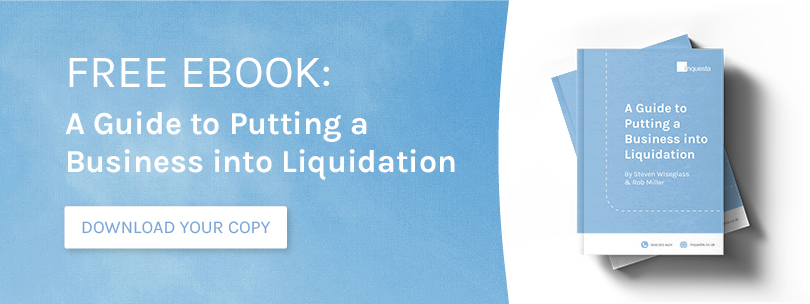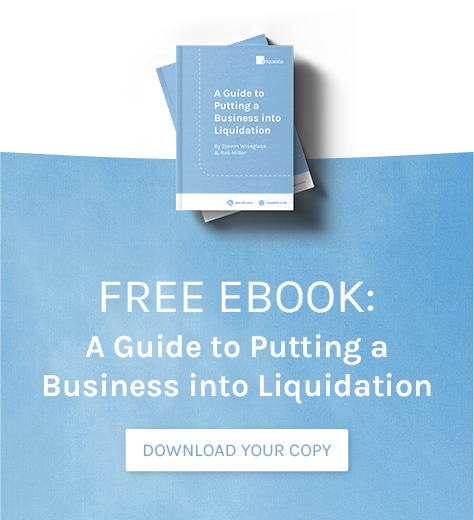Company voluntary arrangement procedures are a common method for struggling businesses to attempt to regain control of their finances, repay their creditors, and reposition themselves for continued success.
It should be noted that with a CVA comes multiple factors to consider. With prominent pros and cons, including the potential impact on landlords, creditors, and more to be taken into account before an arrangement should be considered. A director should, in no way, rush into proceedings.
What is a Company Voluntary Arrangement (CVA)?
A Company Voluntary Arrangement is a method of debt repayment for struggling businesses. The appeal of a CVA is that it allows ailing companies to reframe how they pay back their debt in a way that suits all parties. A CVA also offers an ailing company a moratorium to protect it from any potential legal action.
Company Voluntary Arrangement procedures are some of the best methods a company can utilise to repay its debt. They offer a structured route out of financial difficulty, to wipe the debt and set the business up for continued success.
It is not generally required for a CVA to be ratified in court, nor does the business need to be insolvent to apply. This means that a company entering into financial peril has the opportunity to be proactive and enter into a CVA early, before the financial difficulty hits.
Company Voluntary Arrangement Advantages and Disadvantages
As with anything in business, company voluntary arrangement procedures have obvious advantages and disadvantages. Pros like low costs, and retained control make it an attractive option. However, impact to company credit ratings, and the fact that it does not protect against secured creditors means that it is vital that all options are weighed up before beginning with a CVA.
If you are ever unsure about which option is the best for your situation, it is a good idea to seek specialist guidance. With this in mind, here are the key advantages and disadvantages of a CVA that you should consider.
Advantages of Company Voluntary Arrangements
A company voluntary arrangement represents a highly enticing option for directors of a business that finds itself faced with financial difficulty. This is because with a CVA comes a host of potential advantages when compared to other forms of debt repayment, these include:
- No loss of control: This allows for current directors with a clear understanding of the business to be able to continue. When paired with expert assistance, this can be the ideal route for a turnaround of a struggling business.
- Less public: There is no need for a business to disclose any details of their CVA to the public. It is a wholly private matter between the company and its creditors, meaning that firm reputation is not affected.

- Lower costs: When compared with other insolvency measures (liquidation, receivership etc.), the costs of a CVA are often significantly lower. A majority of the ongoing costs of the CVA are taken from the agreed monthly repayment amount, thus improving cash flow for the business.
- Moratorium on legal action: One of the most important aspects of a CVA. Once an arrangement is in place, all legal action against the company in question is stayed. This allows for some additional breathing room.
- No investigations: The process of a CVA does not require any investigation into the conduct of company directors in the lead up to the business’s financial difficulties. Allowing the directors to put all of their focus into the business.
Disadvantages of Company Voluntary Arrangement
While a CVA may represent a great opportunity for a struggling business, it is important that all cons are weighed against the pro’s before any action is taken. These disadvantages include:
- Credit rating affected: A hit to company credit resting can impact getting credit with new suppliers, negotiating/renegotiating new contracts, and more.
- No quick-fix: The terms of a CVA do not represent an opportunity for an ailing business to correct their course quickly. The terms of a CVA typically last for three-five years.
- Tough to Agree: For a CVA to go ahead, at least 50% of shareholders, and 75% of unsecured creditors (by value) must agree. And reasons such as the duration of the arrangement can lead to an agreement being difficult.
- Risk of failure: If a CVA is to fail, it is likely that company creditors will begin legal action against the business. As a result, a failure to keep up with repayments can have a devastating knock-on effect for the future of the firm.
- No effect on secured creditors: While a CVA does protect a business against compulsory liquidation in most cases — it does not cover against secured creditors. For this reason, it is possible that despite a CVA, the company may still be open to administration if the financial difficulty is serious enough.
The Effects of a Company Voluntary Arrangement on Creditors
It may not be the ideal situation for creditors, but a company that owes money opting to undergo a company voluntary arrangement is, in most cases, a good thing for all parties. While they may not receive money owed to them immediately, it does mean that a creditor should be guaranteed repayment in a set amount of time.
A CVA does not need to be ratified in court, but it does need to be approved by over half of the company shareholders (in number) and more than three quarters of creditors (in value) who voted on the proposals for it to take effect. Should there be a difference in the votes between creditors and shareholders, the ultimate decision will generally depend on whatever creditors agreed on.

Once a CVA is approved by a majority, all unsecured creditors are legally bound to adhere to it, even those who did not themselves vote in favour. It should be remembered though that this does not apply for secured/preferential creditors.
How a Company Voluntary Arrangement Affects Employees
Ultimately, company voluntary arrangement procedures do not represent good or bad news for employees. This is due to it being dependent on the specifics behind the company and its financial situation. Workers are usually retained in a CVA, but it is possible that cuts may need to be made.
One of the core aspects of a CVA is that it allows the business in question to continue with normal day-to-day operation. This means that in a majority of cases, employees are still needed to continue trading — ensuring that jobs are safe.
But it is possible that a CVA is merely the beginning of the process of restructuring the company. This would mean that changes are likely, and redundancies could be unavoidable if the business wishes to continue operating into the future.
If redundancies cannot be avoided, the business must follow all usual statutory processes and ensure that employees are let go fairly and legally. Since a company in this situation is one suffering with financial issues, the compensation claims that can come with an unfair dismissal could jeopardise the CVA, and be the final nail in the coffin for the firm.
The Impact of a Company Voluntary Arrangement on Landlords
When it comes to landlords, company voluntary arrangements can get complicated quickly. Since company voluntary arrangement procedures are intended to lower or eliminate any unsecured debt/future liabilities, it is common for one of the first things to go to be rental agreements. This can lead to rent needing to be lowered, leases being ended etc.

When a CVA affects the income of a landlord it is possible for them (and other creditors) to take legal steps in order to combat the arrangement. They can challenge the CVA within 28 days of the vote on the grounds of either ‘unfair prejudice’, or ‘material irregularity’.
Unfair prejudice is where it is believed that a CVA treats creditors differently based on factors that should not be considered. Conversely, Material irregularity is when a creditor attempts to convince the court that the process of the CVA’s implementation was not followed to the letter and should not be allowed to continue.
How Inquesta Helps with the Company Voluntary Arrangement Process
As business recovery experts, Inquesta promises to undertake a comprehensive review of your company, in order to recommend the solution that best suits your case. We understand that no two situations are ever the same, especially when it comes to finances.
Possessing decades of experience with company voluntary arrangement procedures, we can assist you throughout the entire operation and guide you to the ideal solution.
We keep the best interests of our clients at the forefront of everything we do. Every small detail in our dealings is done to benefit you and your business. Our role is to offer our expert advice to help you and your business.
To find out more about corporate insolvency and business recovery, how it can affect companies and creditors, and to learn more about how we can assist you, contact a member of our team today or request a free consultation.




